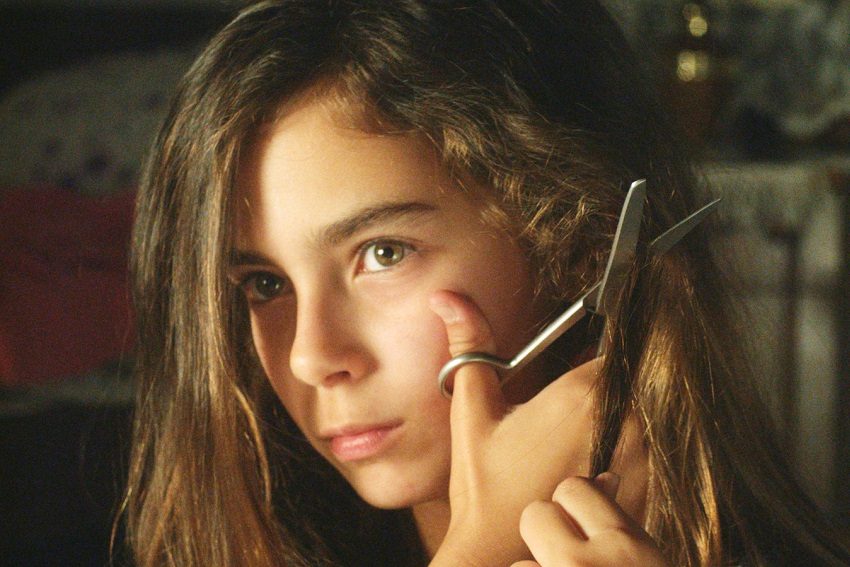Mustang and Women Who Act Dangerously

The Mustang sisters’ rebellion is specific and global, relevant in Australia as much as it is in Turkey. Acts of violence against women are ugly and familiar the world over.
Last year, in the southern Adana region of Turkey, Cilem Karabulut walked into a police station to confess murder: she’d killed her ex-husband. Later, as she was led to court in handcuffs, she gave thumbs-up to reporters and declared, “Why should women always be the ones who are killed?” Karabulut claims she murdered her ex-husband after years of physical and sexual abuse. He returned home to try to force her into prostitution, she took a gun from under her pillow and shot him six times. The case attracted a flood of support on social media and activists are now lobbying the Turkish courts for her pardon. Karabulut’s handcuffed walk, her look of defiance and the message on her tee-shirt (Dear past, thank you for the lessons. Dear future: I’m ready) became iconic. Much like Australia, Turkey is experiencing an epidemic of domestic violence. According to one report, gendered homicide rose by 1400% between 2006-2011. As I watched Turkish-French film Mustang, I thought about this kind of violence. There was blatant physical and sexual abuse on screen. But there was also a more covert, insidious form of social violence.  This hidden type of violence attempted to whip the young girls into conformity. The heroines, five sisters, were unique in their defiance: they waged a campaign of brilliant resistance. “No girl would ever act like this,” Director Deniz Gamze Ergüven has said. “When we were in trouble in our family we didn’t say anything, but the girls react by breaking a chair in the kitchen and saying they are assholes. The girls are heroic.” Ergüven believes the situation of women in Turkey is slowly deteriorating. She holds the narrative of the Prime Minister, Recep Tayyip Erdoğan, and his ruling party (AKP) – presently under pressure from an attempted military coup – responsible for the devolution.
This hidden type of violence attempted to whip the young girls into conformity. The heroines, five sisters, were unique in their defiance: they waged a campaign of brilliant resistance. “No girl would ever act like this,” Director Deniz Gamze Ergüven has said. “When we were in trouble in our family we didn’t say anything, but the girls react by breaking a chair in the kitchen and saying they are assholes. The girls are heroic.” Ergüven believes the situation of women in Turkey is slowly deteriorating. She holds the narrative of the Prime Minister, Recep Tayyip Erdoğan, and his ruling party (AKP) – presently under pressure from an attempted military coup – responsible for the devolution.
“There is a certain way, he says, of being a woman: you have to be a mother and at home, and that’s all,” Ergüven explains. “When you see a man, you should blush and look down. It’s like something from the middle ages.” Some of the dialogue in the film deliberately echoes the statements on womanhood made by Erdoğan. In one particularly powerful scene, the uncle—who is portrayed as the bastion of male power and privilege—listens to a sermon on female modesty. Ece, the third oldest sister, slyly scratches her face with her middle finger. In the words of Lale, the charming young narrator, “Ece at first complied, but then she started to act dangerously.”  Ergüven has described the five sisters in her film as, “A little Hydra. [They are] five heads on one body.” Similarly, Mustang is a multitude of stories in one film. The scale and breadth of violence does not reflect the lived reality of most Turkish women. Yet it collects pieces of everybody’s story here and there, and glues these stories together in one defiant collage.
Ergüven has described the five sisters in her film as, “A little Hydra. [They are] five heads on one body.” Similarly, Mustang is a multitude of stories in one film. The scale and breadth of violence does not reflect the lived reality of most Turkish women. Yet it collects pieces of everybody’s story here and there, and glues these stories together in one defiant collage.  In this way, the sisters’ rebellion is specific and global, relevant in Australia as much as it is in Turkey. Acts of violence are ugly and familiar the world over. Yet there are also beautiful, symbolic acts of solidarity. Last year, male protestors donned miniskirts and marched in vigil for raped-and-murdered Turkish university student, Özgecan Aslan. And at the height of the Gezi Park protests, a riot police officer teargassed a lone woman in a red dress. The Turkish courts ordered him to plant 600 trees. Mustang is in cinemas now.
In this way, the sisters’ rebellion is specific and global, relevant in Australia as much as it is in Turkey. Acts of violence are ugly and familiar the world over. Yet there are also beautiful, symbolic acts of solidarity. Last year, male protestors donned miniskirts and marched in vigil for raped-and-murdered Turkish university student, Özgecan Aslan. And at the height of the Gezi Park protests, a riot police officer teargassed a lone woman in a red dress. The Turkish courts ordered him to plant 600 trees. Mustang is in cinemas now.